Getting lost in the beautiful underwater paradise of Abzû
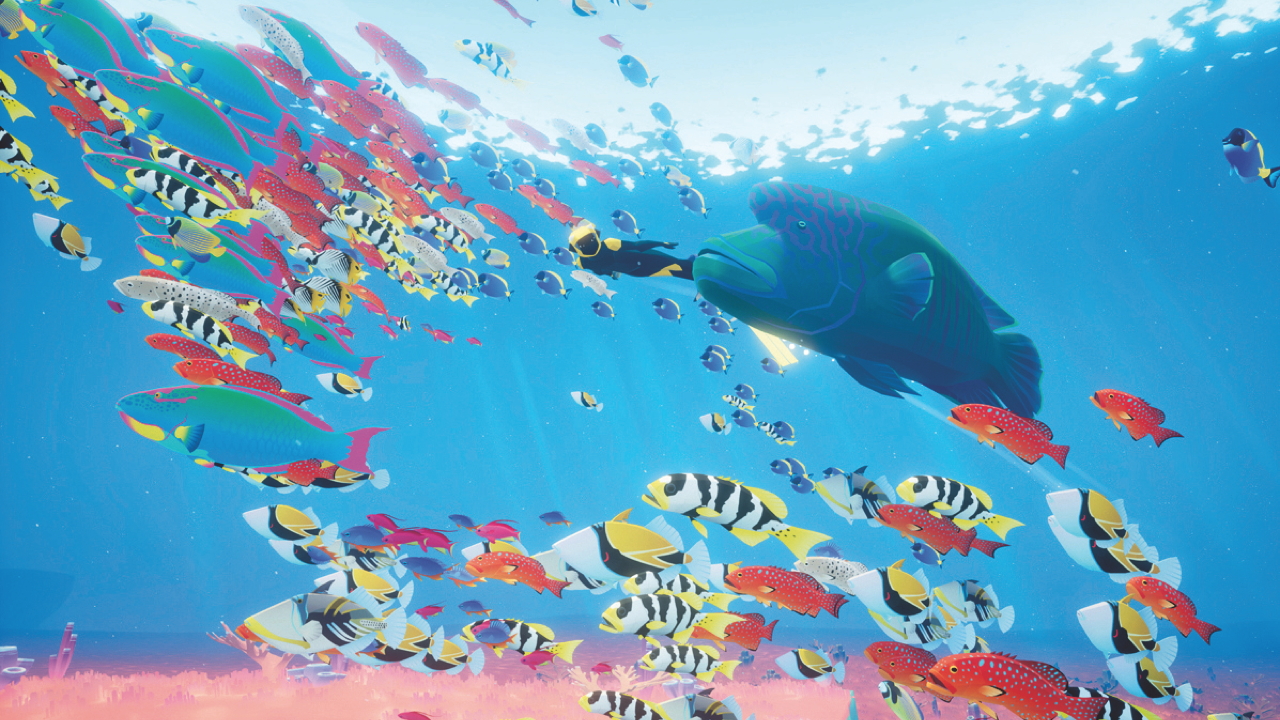
Recently I asked a friend, “So what’s the best thing about Abzû?” after he’d just finished the game. “There are loads of fish,” he replied. In other video games, the ocean is more of an idea than an environment, a backdrop that often works like a physical barrier to keep you in the play space. But Abzû is the opposite, a game that barely bothers with solid ground and focuses on close-up exploration beneath the waves. While in another game the fauna would be a footnote, in Abzû it’s the main event.
This is a game about a kingdom of fish from an art director who clearly wanted to do something different from his previous work on the relatively empty deserts of Journey. One of these fish, the great white shark, is part of the narrative, but it’s the other creatures that make the game. And there are loads of them.
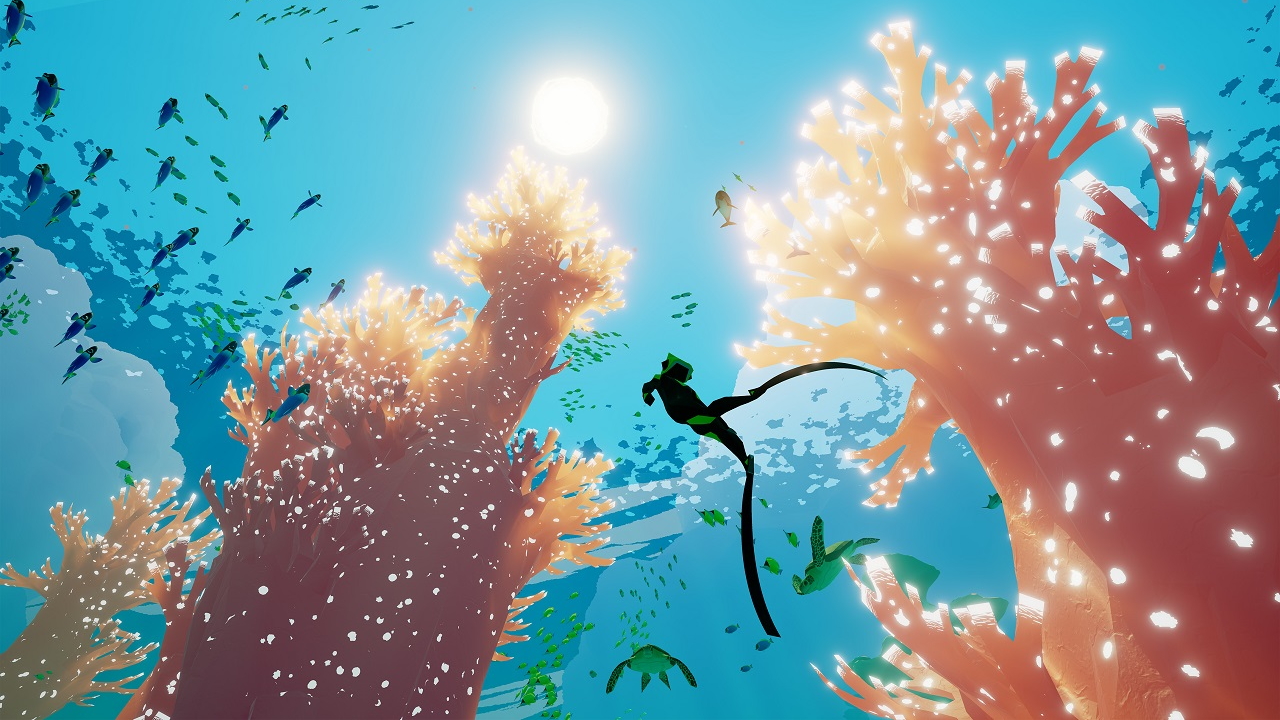
Remember the first time you saw the crowded coral reef in Finding Nemo, before you’d watched so many Pixar films you forgot how impressive they are? Abzû brings me back to that, except these creatures don’t stop existing when they hit the other side of the screen. Here I can follow the fish, or swivel the camera to try to take them all in: hundreds of creatures, from dozens of species.
They fill these underwater areas both horizontally and vertically, leaping from the surface above and swimming through rock tunnels below, highlighting the shape of the space. In areas that are often predominantly one colour – blue or green or orange – their different shapes and shades are always a visual delight.
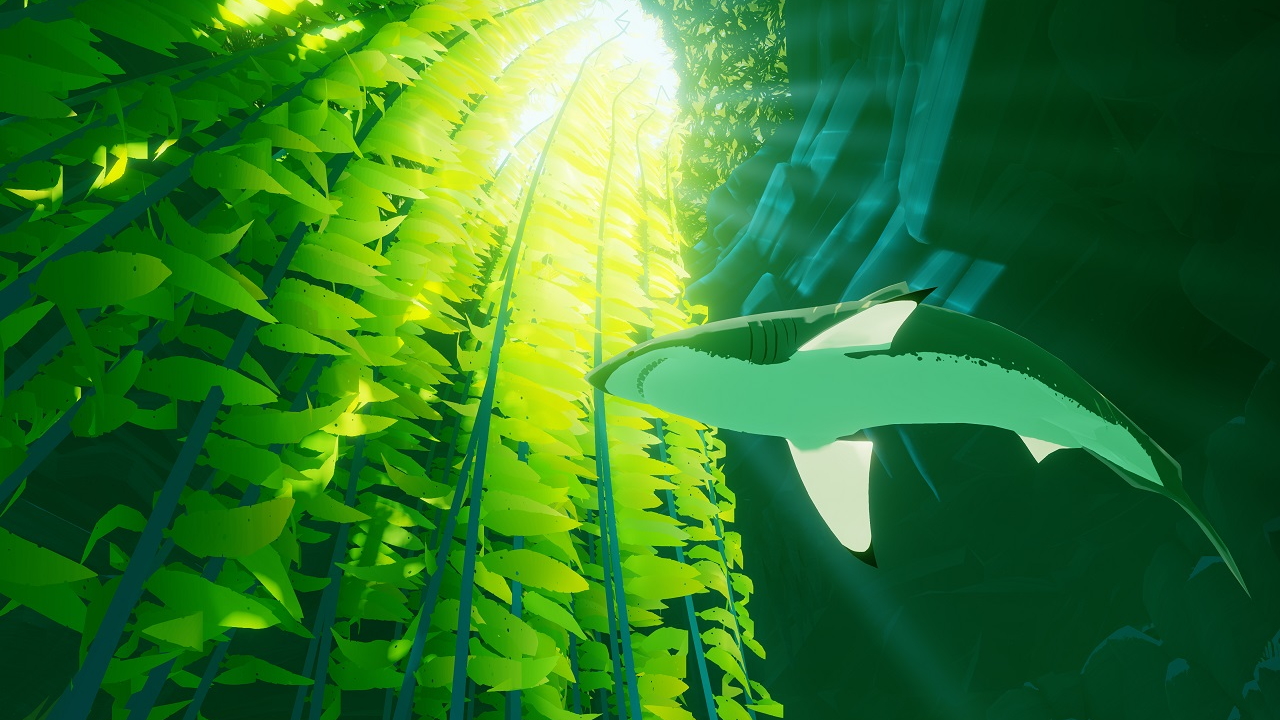
Abzû’s creatures vary in behaviour too. This is no sealife simulation, but schools of fish turn together, predators chomp down prey and dolphins jump and dive. The animation is apparently procedural (which explains how the world could be populated so fully with only an occasional slowdown in performance), but it’s complex enough to look believable.
These creatures and your diver react to each other, too. Swimming in Abzû is already vastly better than in the dreaded water levels of old platformers, but it’s even more fun when you guide your diver through the middle of a school and it breaks apart only to close in again; you even get an achievement for doing that in the jet stream. Sometimes fish will follow you, mirroring your movements like the light streaks that trail from your limbs.
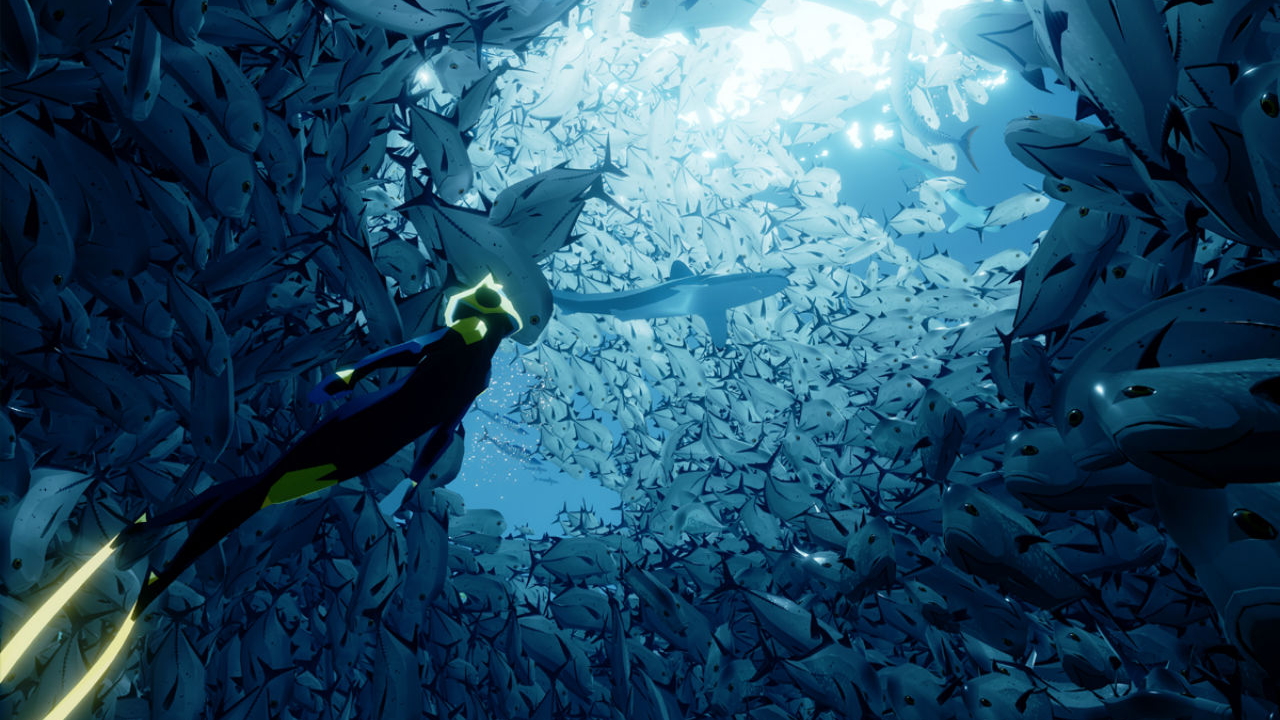
The presence – or absence – of these creatures sets the mood, like when you follow a group of orcas through a turbulent jet stream and then up into the air only to fall back into suddenly still, dark, lonely water. And they show you where you can go and what you can do. This moment with the orcas teaches you how to leap from the water, perhaps the most satisfying action in the entire game.
Sign up to the GamesRadar+ Newsletter
Weekly digests, tales from the communities you love, and more
A runner-up, of course, is that you can grab onto many of the larger creatures and take them for a ride, either letting them take you where they want to go or guiding their movement yourself. Choose the latter and it’s like you’re temporarily playing the game as a sea turtle or manta ray or great white shark. Ride a dolphin and a whole pod might follow you. You can even ride a giant squid, which is apt considering the developer’s name.
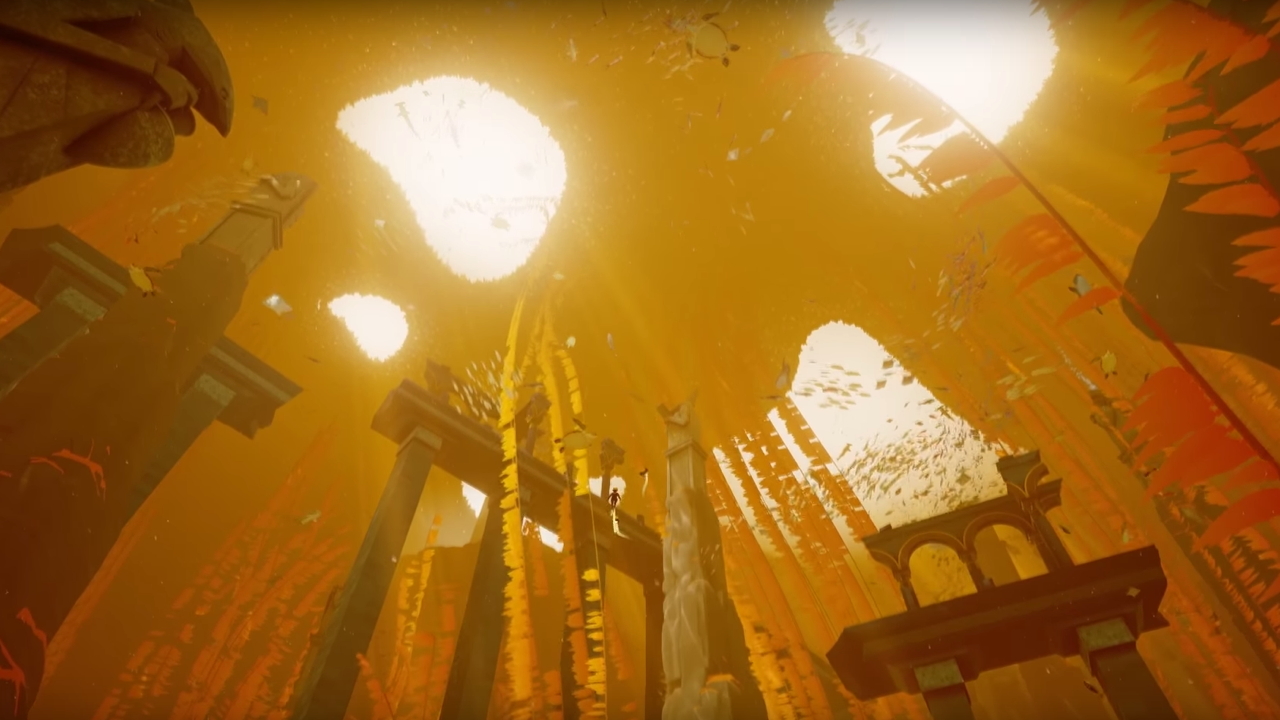
And even if you don’t feel like doing any of that, you can just sit and watch all of these different creatures moving through their environments in their different ways. Enter meditation mode and your diver will perch on a shark-shaped statue while the camera follows one creature after another instead. Choose whatever ecosystem suits your mood: load up the coral reef to watch blue surgeonfish or swim to the prehistoric zone and spot creatures with names like helicoprion and tiktaalik and dolichorhynchops.
Now that I’ve finished Abzû, it’s gone from game to incredible interactive screensaver, occasionally left running on my Xbox One while I go about my day. Thanks to all those fish and the talents of composer Austin Wintory it brightens up the room both visually and aurally, whether I’m reading a book or entertaining friends or even writing my monthly column for OXM.
This article originally appeared in Xbox: The Official Magazine. For more great Xbox coverage, you can subscribe here.
Jordan Erica Webber is a talented freelance journalist with bylines on sites like GamesRadar+ and The Guardian, but there's a good chance you'll recognize her name from elsewhere. Jordan is the resident gaming expert on Channel 5's The Gadget Show, an arts and culture presenter for BBC Radio 4, and co-wrote an excellent book entitled 'Ten Things Video Games Can Teach Us (about life, philosophy and everything)'.



